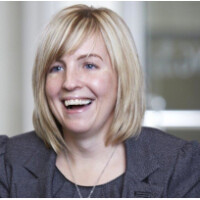
Data from Moneyfacts released this week revealed that there has been a notable increase in the number of mortgage products on offer of late. It found that there are now 5,678 mortgage products available, the highest level seen since March 2008.
Brokers told Mortgage Solutions that while greater levels of choice are welcome, there comes a point when this does not deliver much material benefit to clients. Advisers also cautioned that there are borrower types who are still particularly underserved.
Helping more borrowers
Justin Moy, managing director of EHF Mortgages, argued that the more choices open to brokers, the more borrowers they can potentially help.
He continued: “Whilst the products will all have very similar characteristics, what does make a difference are the nuances in lending policy between the mortgage lenders, how income is presented, affordability assessments, credit files, etc.”
Competition helps drive down prices, so is welcome, pointed out Ranald Mitchell, director at Charwin Private Clients. Though he noted that it is innovation, affordability and criteria that really makes the difference to borrowers, adding: “Hopefully, we will see a great deal more thought go into lenders’ products than just pricing.”
The level of competition at the moment means that lenders are “broadening their scope”, suggested Charles Breen, founder of Montgomery Financial, which is “opening up the market” for example through criteria changes.
He added: “It feels like lenders are finally waking up to the changes in people’s lives and circumstances and are adjusting accordingly.”
Adding little
Darryl Dhoffer, mortgage expert at TheMortgageExpert, noted that while competition is a good thing, there does come a point where increases in the quantity of products on offer do not make much difference to the quality.
“This is because lenders will eventually become saturated with the market and will not be able to offer new products that are significantly different from existing products.”
The importance of brokers
Gary Bush, financial adviser at MortgageShop.com, suggested that the market is “stuffed with rate variations”, which then “muddies the water” for borrowers.
Imogen Sporle, head of Finanze property at Finanze, noted that there comes a point when the level of choice becomes “confusing, overwhelming as well as time-consuming” to borrowers. This simply emphasises the need to secure the help of a broker, who can help them navigate through the options.
Jamie Alexander, mortgage director at Alexander Southwell Mortgage Services, echoed this point, adding that it “demands mortgage advisers stay sharp and informed”, while Richard Dana, CEO of Tembo Money, argued the greater levels of choice make it vital that “brokers understand and are aware of all of the options, particularly around criteria”.
The gaps in the market
Bush pointed to shared ownership as one area where the ranges from lenders are often limited, which he bemoaned as “it’s a mainstream alternative now that Help to Buy has died”.
Dhoffer called for the big six lenders to offer more products “as standard” for areas of the market currently underserved, giving the examples of first-time buyers with no credit history, cascade products for borrowers with an adverse credit record, and self-employed mortgages for those with one year of trading history.
Sporle was another to call for more products aimed at those with a patchy credit history or without a lengthy trading history if they work for themselves, while Dana suggested that there are “significant issues around affordability and borrowing into retirement” which would benefit from greater lender attention.
Aaron Strutt, product and communications director at Trinity Financial, said that the market ultimately needs cheaper deals, in the sub-five per cent range “and ideally the lender’s best buy deals getting closer to four per cent”.
Offer more flexibility
One form of product missing from the market at the moment is fixed rate mortgages with early repayment charge terms shorter than the fixed term, suggested Richard Thompson, director of Abbeydale Mortgages.
He explained: “I believe that providing both stability and flexibility will benefit borrowers. This will offer customers peace of mind with fixed rates and the option to secure lower rates in the future without incurring hefty charges.”
The lack of offset options was pointed out by Michelle Lawson, director of Lawson Financial. She said: “With Scottish Widows exiting the market of offset there is a real lack of lenders in this arena. Offset has a massive potential market,” with the lack of products presenting a “missed opportunity”.
The offset situation was also noted by Rowan Frayling, managing director of J Finance, who argued: “We need a lender or two to come out with something slightly outside the norm, not just 0.1 per cent lower than their competitors.”
















